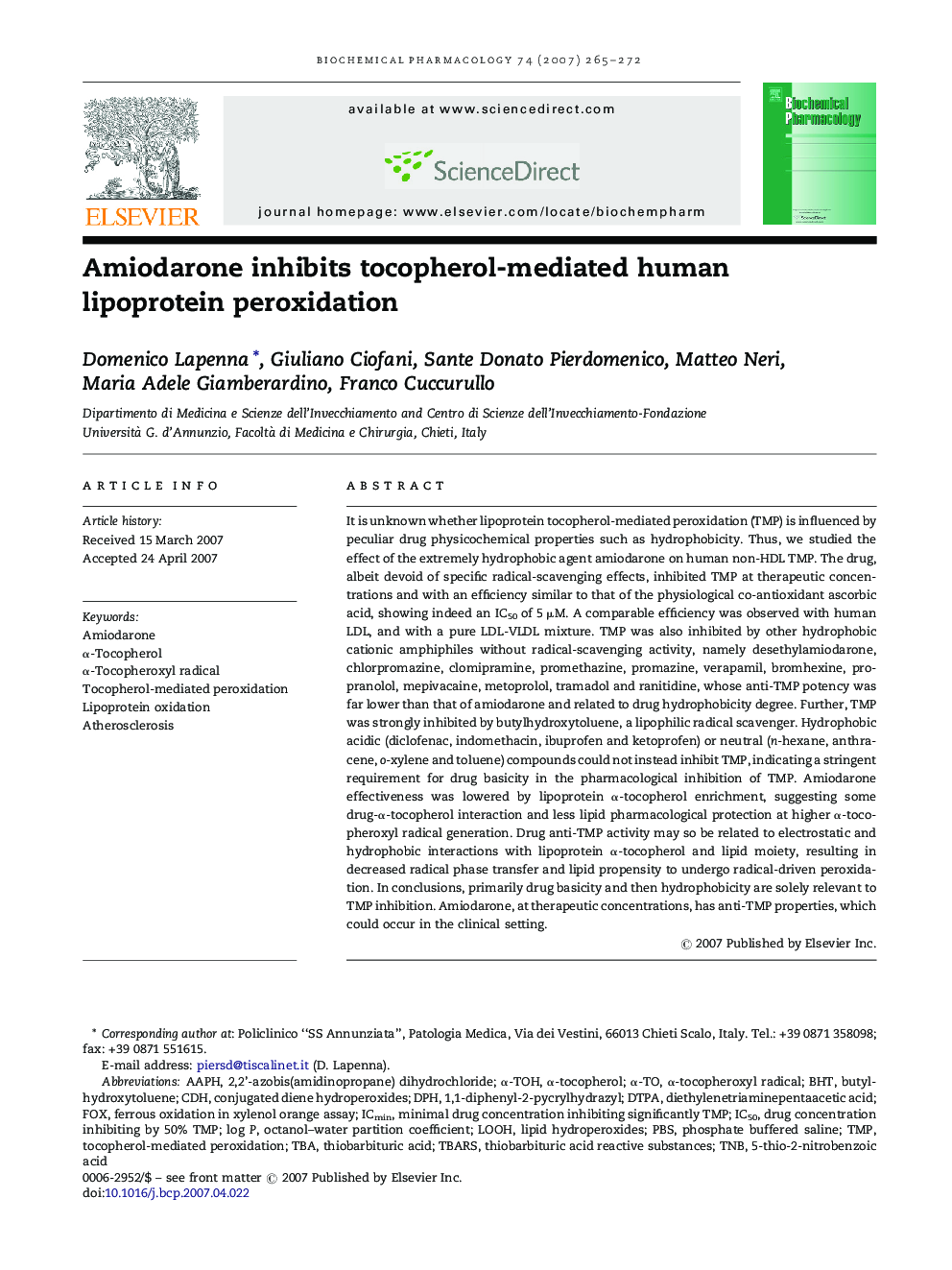| Article ID | Journal | Published Year | Pages | File Type |
|---|---|---|---|---|
| 2515469 | Biochemical Pharmacology | 2007 | 8 Pages |
It is unknown whether lipoprotein tocopherol-mediated peroxidation (TMP) is influenced by peculiar drug physicochemical properties such as hydrophobicity. Thus, we studied the effect of the extremely hydrophobic agent amiodarone on human non-HDL TMP. The drug, albeit devoid of specific radical-scavenging effects, inhibited TMP at therapeutic concentrations and with an efficiency similar to that of the physiological co-antioxidant ascorbic acid, showing indeed an IC50 of 5 μM. A comparable efficiency was observed with human LDL, and with a pure LDL-VLDL mixture. TMP was also inhibited by other hydrophobic cationic amphiphiles without radical-scavenging activity, namely desethylamiodarone, chlorpromazine, clomipramine, promethazine, promazine, verapamil, bromhexine, propranolol, mepivacaine, metoprolol, tramadol and ranitidine, whose anti-TMP potency was far lower than that of amiodarone and related to drug hydrophobicity degree. Further, TMP was strongly inhibited by butylhydroxytoluene, a lipophilic radical scavenger. Hydrophobic acidic (diclofenac, indomethacin, ibuprofen and ketoprofen) or neutral (n-hexane, anthracene, o-xylene and toluene) compounds could not instead inhibit TMP, indicating a stringent requirement for drug basicity in the pharmacological inhibition of TMP. Amiodarone effectiveness was lowered by lipoprotein α-tocopherol enrichment, suggesting some drug-α-tocopherol interaction and less lipid pharmacological protection at higher α-tocopheroxyl radical generation. Drug anti-TMP activity may so be related to electrostatic and hydrophobic interactions with lipoprotein α-tocopherol and lipid moiety, resulting in decreased radical phase transfer and lipid propensity to undergo radical-driven peroxidation. In conclusions, primarily drug basicity and then hydrophobicity are solely relevant to TMP inhibition. Amiodarone, at therapeutic concentrations, has anti-TMP properties, which could occur in the clinical setting.
